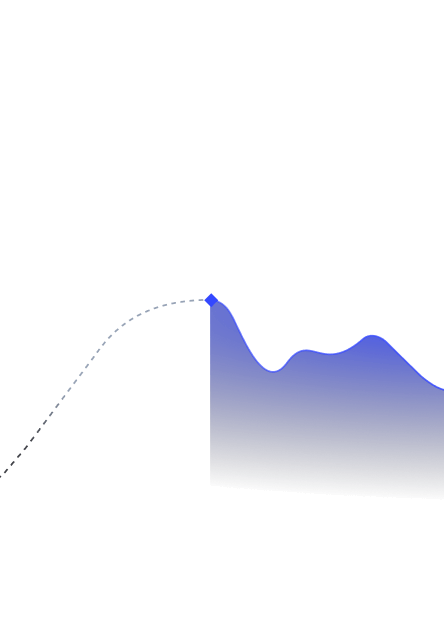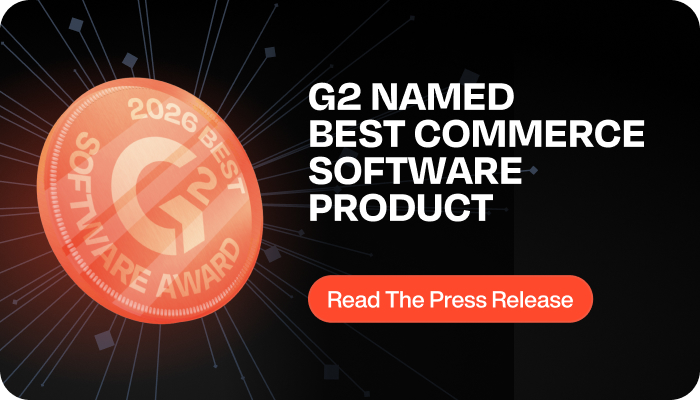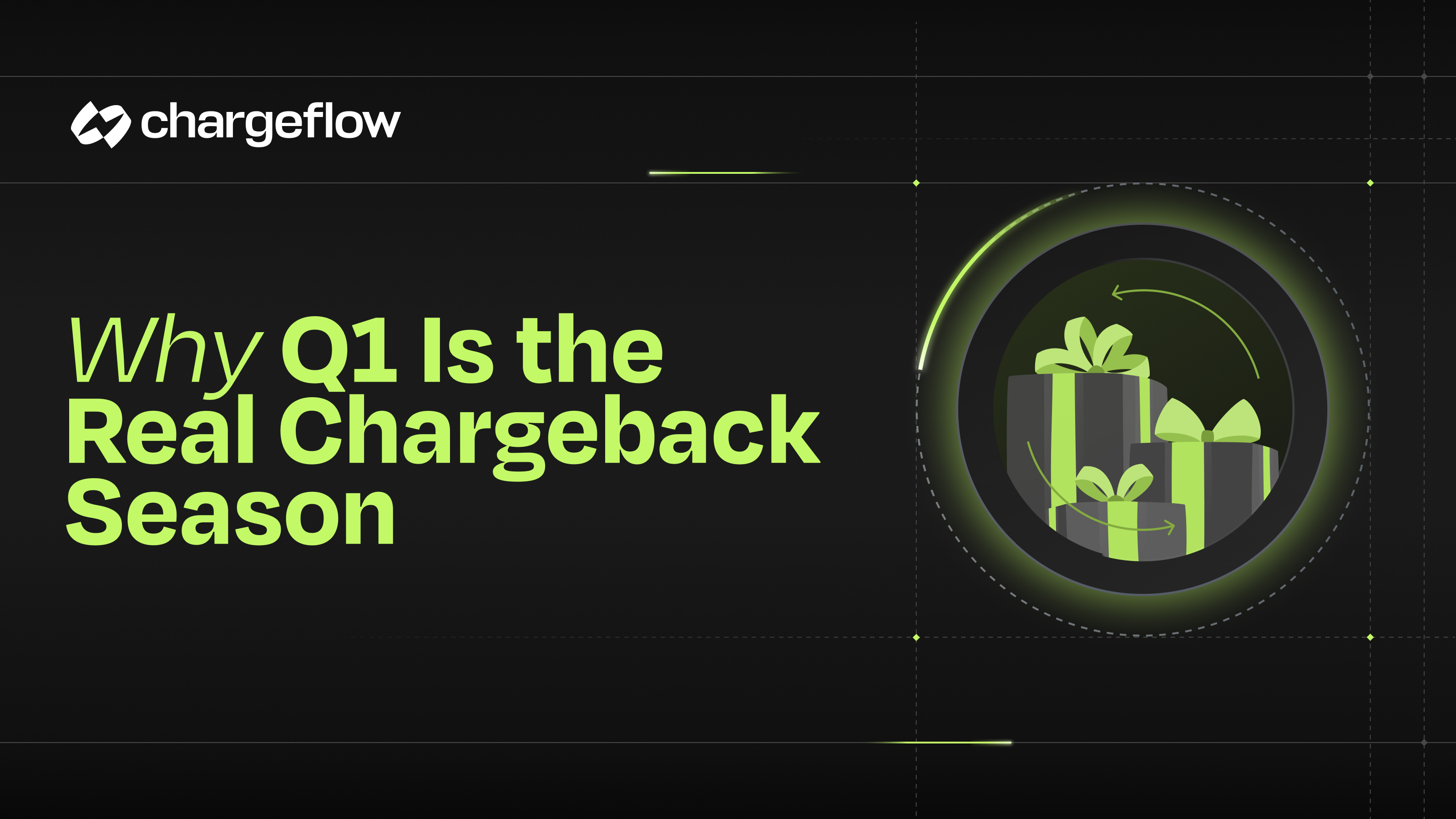Decoding PayPal Chargeback Fees: A Merchant's Guide to Understanding Platform Costs

Chargebacks?
No longer your problem.
Recover 4x more chargebacks and prevent up to 90% of incoming ones, powered by AI and a global network of 15,000 merchants.
Simplify PayPal chargeback fees and understand the costs associated with the platform. Enhance your knowledge of these fees to manage chargebacks.
Understanding the intricacies of PayPal chargeback fees is crucial for merchants like you who rely on the platform for online transactions. As a merchant, it's important to be aware of how chargebacks can impact your business's bottom line and take necessary measures to minimize their occurrence.
In this comprehensive guide, we will delve into the world of PayPal chargeback fees, providing you with valuable insights into their costs, the chargeback process, and effective strategies to mitigate these fees.
By the end of this article, you will have a clear understanding of the financial implications associated with PayPal chargebacks and be equipped with practical knowledge to navigate this aspect of your business successfully.
So let's dive in and unravel the mysteries of PayPal chargeback fees together!
PayPal Chargebacks: Summed Up
PayPal chargebacks are an important aspect of online transactions that merchants should be familiar with. Understanding the fundamentals of chargebacks and the process involved can help merchants navigate potential disputes more effectively.
PayPal chargebacks occur when a buyer disputes a transaction and requests a refund directly from their financial institution. This process allows buyers to seek protection against unauthorized transactions, defective products, or other issues they encounter when purchasing goods or services online. PayPal acts as an intermediary, facilitating the chargeback process between the buyer, merchant, and the financial institution.
1. PayPal Chargeback Process Overview
The process of a PayPal chargeback involves several steps:
- Dispute Initiation: The buyer contacts their financial institution to dispute the transaction, providing reasons for their claim. PayPal is notified of the chargeback request.
- Merchant Notification: PayPal notifies the merchant about the chargeback, providing details of the transaction and the buyer's claim. The merchant has an opportunity to respond and provide evidence to support their case.
- Investigation and Resolution: PayPal investigates the chargeback by reviewing the provided information from both the buyer and the merchant. They assess the validity of the claim and make a decision based on the available evidence.
- Funds Reversal: If the chargeback is approved, PayPal reverses the funds from the merchant's account and returns them to the buyer. The merchant may incur chargeback fees and lose the revenue from the disputed transaction.
2. Common Reasons for PayPal Chargebacks
Chargebacks can occur due to various reasons, including:
- Unauthorized Transactions: Buyers may claim that they did not authorize or participate in a particular transaction.
- Product/Service Not Received: If a buyer does not receive the purchased product or service within the specified time frame or as described, they may file a chargeback.
- Product/Service Dissatisfaction: Chargebacks may arise when buyers are dissatisfied with the quality, condition, or performance of the product or service they received.
- Credit Card Issues: Chargebacks can occur when buyers encounter problems with their credit card statements, such as unrecognized charges or double billing.
Understanding these common reasons for chargebacks can help merchants identify potential areas of improvement and take proactive measures to minimize disputes.
By familiarizing yourself with PayPal chargebacks, you can better prepare your business to handle such situations. Being aware of the chargeback process, reasons behind chargebacks, and ways to mitigate them empowers you to provide exceptional service to your customers while safeguarding your business interests.
What is a PayPal Chargeback Fee?
PayPal chargeback fees are financial penalties imposed on merchants when a customer disputes a transaction and initiates a chargeback through the PayPal platform. A chargeback occurs when a buyer raises a complaint regarding a purchase made using PayPal, claiming that the transaction was unauthorized, fraudulent, or that the goods or services received were unsatisfactory.
When a chargeback is filed, PayPal acts as an intermediary between the buyer and the merchant to resolve the dispute. If the chargeback is decided in favor of the buyer, the merchant is liable for the chargeback amount, which includes not only the refunded transaction amount but also a chargeback fee imposed by PayPal.
The chargeback fee serves as a deterrent to prevent merchants from engaging in fraudulent or unethical practices. It covers the administrative costs incurred by PayPal during the dispute resolution process. Understanding the components that make up a PayPal chargeback fee is crucial for merchants to evaluate the impact on their business finances.
The structure of PayPal chargeback fees varies depending on several factors, such as the merchant's location, the buyer's location, the currency used for the transaction, and the reason for the chargeback. PayPal chargeback fees typically consist of fixed fees and variable fees.
Fixed fees are predetermined amounts charged for each chargeback instance and may vary based on the merchant's location and the currency involved in the transaction. On the other hand, variable fees are a percentage of the original transaction value and are typically higher than fixed fees.
It's important to note that chargeback fees are in addition to any refunds or disputed transaction amounts that the merchant is required to repay. These fees can quickly add up, significantly impacting a merchant's profitability.
To minimize the financial burden of chargeback fees, merchants can take proactive steps to prevent chargebacks. This includes implementing fraud prevention measures, enhancing customer communication and support, and monitoring and analyzing chargeback data to identify patterns and address recurring issues.
By understanding what PayPal chargeback fees are and how they are calculated, merchants can make informed decisions regarding their payment processing strategies, mitigate potential risks, and protect their businesses from unnecessary financial losses.
Remember, maintaining a high level of customer satisfaction and implementing effective risk management practices can go a long way in reducing chargeback incidents and minimizing the associated fees.
How Much are PayPal Chargeback Fees Costing Merchants?
PayPal chargeback fees can vary based on several factors, but they typically impose a significant cost burden on merchants. When a customer initiates a chargeback on a transaction, PayPal may charge the merchant a fee, which usually ranges from $20 to $40 per occurrence. Learn more about it is the following lines:
1. The Financial Impact
PayPal chargeback fees can have a significant financial impact on your business. These fees are not only limited to the amount of the disputed transaction but also include additional charges. It's crucial to understand the true cost of PayPal chargebacks to effectively manage your finances.
2. Calculating PayPal Chargeback Fees
To determine how much PayPal chargeback fees are costing you, you need to understand the fee calculation process. PayPal takes various factors into account, including the transaction amount, the currency used, and any applicable processing fees. Familiarizing yourself with the formula will help you anticipate and budget for these fees.
Real-life Examples
Real-life examples can provide valuable insights into the financial implications of PayPal chargeback fees. By examining case studies of other merchants, you can gain a better understanding of how these fees can impact your bottom line. Each business's situation is unique, but these examples can serve as a guide for evaluating potential revenue loss.
Remember, being aware of the financial consequences associated with PayPal chargebacks empowers you to take proactive measures to minimize their occurrence and effectively manage your business's financial health.
What are PayPal Dispute Fees?
PayPal disputes can occur when a buyer encounters an issue with a purchase and seeks resolution through PayPal's dispute resolution process. While chargebacks are typically associated with disputes, it's important to understand that disputes and chargebacks are distinct processes. In this section, we will delve into the details of PayPal dispute fees and how they can impact merchants.
1. Differentiating Disputes and Chargebacks
PayPal disputes arise when a buyer raises a concern regarding a transaction. This can include instances where the buyer received an item significantly different from what was described, the item didn't arrive, or the buyer suspects fraudulent activity. Disputes provide an opportunity for merchants and buyers to resolve issues before they escalate to chargebacks.
On the other hand, chargebacks occur when a buyer initiates a formal request with their credit card issuer or bank to reverse a transaction. Chargebacks bypass the dispute resolution process and often result in higher fees for merchants compared to disputes.
2. Understanding Dispute Fees
When a buyer opens a dispute, PayPal may charge a dispute fee to the merchant. The fee serves as a processing cost for handling the dispute resolution. The specific amount of the dispute fee can vary depending on various factors, such as the transaction currency and the type of PayPal account held by the merchant.
It's important to note that dispute fees are generally lower than chargeback fees. They are intended to encourage communication and negotiation between the buyer and merchant to find a mutually agreeable solution. However, if a dispute escalates to a chargeback, additional chargeback fees may be incurred.
3. Tips to Avoid Disputes and Minimize Fees
- Provide Accurate Product Descriptions: Ensure that your product descriptions are clear, detailed, and accurately represent the item being sold. This helps to minimize the chances of misunderstandings and disputes.
- Promptly Address Customer Concerns: Respond to customer inquiries and concerns in a timely and professional manner. By addressing their issues promptly, you can potentially resolve disputes before they escalate to chargebacks.
- Offer Excellent Customer Service: Provide exceptional customer service to build trust and satisfaction. Promptly address any post-purchase concerns or issues raised by buyers to prevent them from seeking a dispute.
- Maintain Transparent Policies: Clearly communicate your refund, return, and exchange policies to customers. Transparent policies can help set clear expectations, minimize disputes, and mitigate the risk of chargebacks.
By implementing these strategies, you can proactively reduce the likelihood of disputes and the associated fees, fostering positive buyer experiences and maintaining a healthy merchant reputation.
Strategies to Mitigate PayPal Chargeback From Happening and avoid PayPal Chargeback Fee
Here are some strategies to mitigate PayPal chargeback from happening:
- Provide clear and accurate information about your products and services: Make sure that your website and marketing materials clearly state what you are selling and what your policies are. This will help to avoid any confusion or misunderstandings that could lead to a chargeback.
- Ship products promptly and in good condition: Customers are more likely to file a chargeback if they do not receive their product on time or if it arrives damaged. Make sure that you ship products promptly and that they are packed well to avoid damage in transit.
- Have a clear and fair return policy: Make sure that your return policy is clear and easy to understand. Customers are more likely to be satisfied with their purchase if they know that they can return it if they are not happy with it.
- Respond promptly to customer inquiries: If a customer has a question or concern about their purchase, be sure to respond promptly. This will help to resolve any issues quickly and prevent them from escalating into a chargeback.
- Be proactive in resolving disputes: If a customer does file a chargeback, be proactive in resolving the dispute. Gather all of the relevant information and present it to PayPal in a clear and concise manner. This will help to increase your chances of winning the dispute.
By following these strategies, you can help to reduce your risk of being hit with a PayPal chargeback.
Here are some additional tips to help you avoid PayPal chargebacks:
- Use a secure payment processor: A secure payment processor will help to protect your business from fraud, which can lead to chargebacks.
- Build a strong relationship with your customers: Happy customers are less likely to file chargebacks. Make sure that you provide excellent customer service and that you go above and beyond to meet your customers' needs.
- Monitor your account for suspicious activity: PayPal will alert you if there is any suspicious activity on your account. Be sure to investigate any alerts promptly and take steps to protect your account.
By following these tips, you can help to reduce your risk of being hit with a PayPal chargeback.
Enjoy PayPal Dispute Automation with Chargeflow
Sure, here are some of the benefits of using Chargeflow to automate PayPal disputes:
- Save time and money: Chargeflow can save you a significant amount of time and money by automating the dispute process. This is because Chargeflow will automatically gather all of the necessary information and documentation, and then submit it to PayPal on your behalf. This can save you hours of time and hundreds or even thousands of dollars in fees.
- Increase your chances of winning disputes: Chargeflow uses artificial intelligence and machine learning to analyze your disputes and identify the best arguments to use in your defense. This can significantly increase your chances of winning disputes and keeping your money.
- Reduce stress: Dealing with PayPal disputes can be stressful and time-consuming. Chargeflow can help to reduce this stress by taking care of the dispute process for you. This way, you can focus on running your business.
If you are a PayPal merchant, then Chargeflow is a valuable tool that can help you to save time, money, and stress.
Here are some additional details about Chargeflow:
- Chargeflow is easy to use: Even if you are not tech-savvy, you will be able to use Chargeflow to automate your PayPal disputes.
- Chargeflow is affordable: Chargeflow is a cost-effective way to save time and money on PayPal disputes with its success-based pricing.
Then what are you waiting for!? Automate PayPal Disputes with Chargeflow and secure your revenue.

Chargebacks?
No longer your problem.
Recover 4x more chargebacks and prevent up to 90% of incoming ones, powered by AI and a global network of 15,000 merchants.
















































.png)








